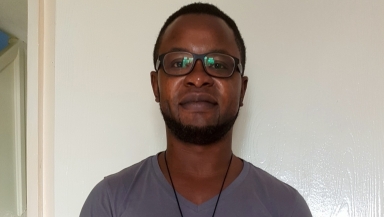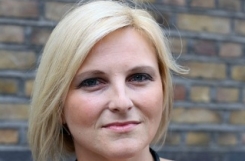
The Christian student who was expelled from university for quoting the Bible on homosexuality has lost his appeal on the decision.
Felix Ngole, aged 38 and married with four children, was asked to leave the University of Sheffield after he wrote a post on Facebook opposing gay marriage and quoting the Bible. He was in the second year of a Masters in social work.
He was removed from the course after a Fitness to Practise Committee decided his post could have "caused offence" to some people. He quoted a passage from Leviticus on homosexuality and expressed support for Kim Davis, the Kentucky clerk jailed after refusing to issue same-sex marriage licences.
Ngole decided to apeal the decision after he was told that he was "excluded from further study on a programme leading to a professional qualification" and is "no longer recognised as a University student".
He was told that by posting his comments on Facebook, the committee believed that he "may have caused offence to some individuals" and had "transgressed boundaries which are not deemed appropriate for someone entering the Social Work profession."
His action would have an effect on his "ability to carry out a role as a Social Worker," the committee said.
Ngole appealed on the basis that it should be left to the social workers' professional body to decide who is a fit and proper person to become a social worker.
He has now learned from the appeals office that the social media post was "inappropriate" in light of the professional conduct outlined in the Health and Care Professions Councils. In a letter, the appeals office also said Ngole had not "offered any insight or reflection" on the potential impact of his postings, or on how the social work profession might be perceived by the public based on what he had posted. For this reason, the committee ruled that his expulsion was "proportionate".
Mr Ngole said: "Like every other student at university I use social media to communicate and express personal views. In my Facebook posts in question, I simply expressed support for the biblical view of marriage and sexuality.
"I did not say that everyone has to agree with me. However, I was reported to the university for these views and they unilaterally decided to end my course. In so doing, they ended my training for my chosen vocation in life.
"At no stage when entering university were students told that their social media would be 'vetted' or that the university had a sole right to decide who should and should not go into their chosen profession.
"All students would expect every professional body to have their own set of codes and practices and when the time comes, and each student would decide whether they felt comfortable in applying to that professions, given those codes [sic]. It should not be the role of a university to arbitrarily 'vet' who should enter a chosen career.
"I shall be seeking to take further action as my case raises all sorts of legal questions as to whether Christians can any longer hold traditional biblical and moral beliefs and still enter mainstream professions such as social work, medicine, teaching and law in this country."
Ngole, who is being supported by the Christian Legal Centre, is now considering further action.
Andrea Williams, founder of the Christian Legal Centre, said: "The university's decision reflects a worrying trend throughout Higher Education institutions, which is to censor any view that may be deemed 'offensive'.
"Mr Ngole has worked with those who identify as homosexual in the past and has always treated them with respect, never discriminating against them. There is no evidence that Felix's biblical views would have negatively impacted his work.
"We have become used to registrars, nurses, teachers, magistrates and counsellors being disciplined in their jobs for acting according to conscience, but this is the very first time a Christian student has been stopped even before he enters his chosen vocation to hep others – simply for holding traditional Christians views on marriage and sexuality.
"This case raises fundamental issues which is why further action is vital."



















